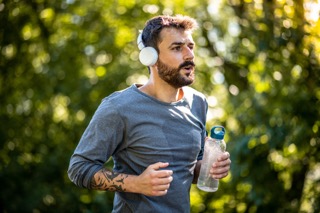When you make the decision to begin drug rehabilitation, one of the first and most important stages you’ll face is detox. It’s a word that often brings anxiety, fear, and uncertainty—but understanding what detox is and how it affects you can help take away the mystery and empower you through the process.
Detox isn’t just about removing a substance from your system. It’s the body and brain recalibrating after months or years of chemical dependency. And while it can be uncomfortable, it’s also deeply necessary—and temporary. Detox is the beginning of a new chapter, one where your body starts healing, and your mind begins to clear.
1. What Is Detox, Really?
Detox, short for detoxification, is the process of eliminating drugs, alcohol, and their toxins from your body. It typically lasts anywhere from a few days to a couple of weeks, depending on:
- The substance(s) used
- How long you’ve used
- The quantity and frequency of use
- Your physical health and metabolism
It’s important to remember that detox is not treatment, but it’s the gateway to it. You can’t fully engage in therapy, self-reflection, or rebuilding your life until your body is free of the substance it depended on.
2. How Detox Affects You Physically
Your body has likely adapted to functioning with the help of drugs or alcohol. Once you remove those substances, it goes through withdrawal—a process where the body reacts to their absence.
Common physical withdrawal symptoms may include:
- Sweating and chills
- Headaches
- Nausea and vomiting
- Shaking or tremors
- Muscle aches
- Insomnia
- Fatigue
- Increased heart rate or blood pressure
These symptoms can range from mild to severe, depending on the person and the substance involved. This is why medical supervision during detox is often recommended—it ensures your safety and comfort during this vulnerable stage.
3. The Emotional and Psychological Rollercoaster
Detox doesn’t just affect your body—it impacts your mind as well. Many people experience intense emotional changes during this time because they’re no longer numbing their feelings with substances.
Common emotional/psychological symptoms include:
- Anxiety or panic attacks
- Depression or mood swings
- Irritability or anger
- Confusion or foggy thinking
- Intense cravings
- Feelings of hopelessness
These reactions are normal and don’t mean something is wrong with you. They mean your brain is starting to heal and re-balance itself—a process that continues well beyond detox and into long-term recovery.
4. Why Supervised Detox Is So Important
Trying to detox on your own can be dangerous, especially if you're withdrawing from substances like alcohol, benzodiazepines, or opioids. Medical detox provides:
- 24/7 monitoring
- Medication to ease symptoms
- Hydration and nutrition
- Emotional support
- A safe, structured environment
The goal is to make detox as safe, manageable, and humane as possible—so you can start your recovery journey with stability and strength.
5. The Light at the End of the Tunnel
It’s important to remind yourself: detox is temporary. It might be uncomfortable or even painful, but it does not last forever. And once it’s over, you’ll be more mentally and physically prepared to move into the next stages of recovery—therapy, support groups, emotional healing, and personal growth.
Many people report feeling clearer, lighter, and even proud once they’ve made it through detox. It’s a powerful accomplishment—one that proves you’re stronger than the addiction that tried to hold you back.
Final Thoughts: Detox Is a Beginning, Not an End
Detox is hard—but so is staying stuck in addiction. Choosing to detox is choosing life. It’s the act of saying, I want something better for myself.
So if you or someone you love is preparing for detox, know this: it’s not about punishment, it’s about restoration. It’s the necessary first step to finding your true self again—and that’s worth every moment of discomfort.
You’re not broken—you’re healing. And detox is where that healing begins.
If you or someone you love is struggling with addiction, don’t wait. Reach out to a licensed rehab center or helpline.
The road to recovery may be tough, but every step is worth it.
Have your own tips or experiences with recovery? Share them in the comments below!
Let’s support each other.
If you need additional help with recovery, visit us in person or contact us at Hope Haven Recovery.





.webp)
.webp)